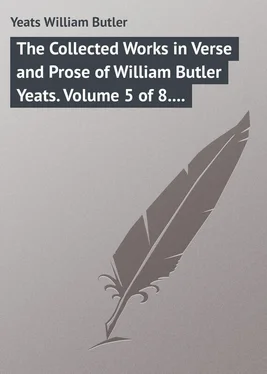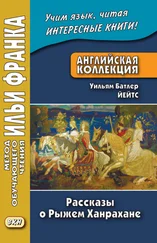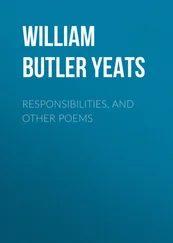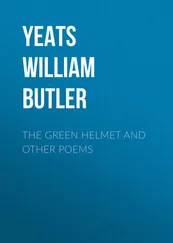William Yeats - The Collected Works in Verse and Prose of William Butler Yeats. Volume 5 of 8. The Celtic Twilight and Stories of Red Hanrahan
Здесь есть возможность читать онлайн «William Yeats - The Collected Works in Verse and Prose of William Butler Yeats. Volume 5 of 8. The Celtic Twilight and Stories of Red Hanrahan» — ознакомительный отрывок электронной книги совершенно бесплатно, а после прочтения отрывка купить полную версию. В некоторых случаях можно слушать аудио, скачать через торрент в формате fb2 и присутствует краткое содержание. ISBN: , Жанр: foreign_language, foreign_prose, на английском языке. Описание произведения, (предисловие) а так же отзывы посетителей доступны на портале библиотеки ЛибКат.
- Название:The Collected Works in Verse and Prose of William Butler Yeats. Volume 5 of 8. The Celtic Twilight and Stories of Red Hanrahan
- Автор:
- Жанр:
- Год:неизвестен
- ISBN:http://www.gutenberg.org/ebooks/49612
- Рейтинг книги:4 / 5. Голосов: 1
-
Избранное:Добавить в избранное
- Отзывы:
-
Ваша оценка:
- 80
- 1
- 2
- 3
- 4
- 5
The Collected Works in Verse and Prose of William Butler Yeats. Volume 5 of 8. The Celtic Twilight and Stories of Red Hanrahan: краткое содержание, описание и аннотация
Предлагаем к чтению аннотацию, описание, краткое содержание или предисловие (зависит от того, что написал сам автор книги «The Collected Works in Verse and Prose of William Butler Yeats. Volume 5 of 8. The Celtic Twilight and Stories of Red Hanrahan»). Если вы не нашли необходимую информацию о книге — напишите в комментариях, мы постараемся отыскать её.
The Collected Works in Verse and Prose of William Butler Yeats. Volume 5 of 8. The Celtic Twilight and Stories of Red Hanrahan — читать онлайн ознакомительный отрывок
Ниже представлен текст книги, разбитый по страницам. Система сохранения места последней прочитанной страницы, позволяет с удобством читать онлайн бесплатно книгу «The Collected Works in Verse and Prose of William Butler Yeats. Volume 5 of 8. The Celtic Twilight and Stories of Red Hanrahan», без необходимости каждый раз заново искать на чём Вы остановились. Поставьте закладку, и сможете в любой момент перейти на страницу, на которой закончили чтение.
Интервал:
Закладка:
When the story got to this, the farmer’s daughter joined in mockingly with, ‘I suppose you said that for Byrne’s good, father.’ But the old man insisted that he had said it for Byrne’s good; and went on to tell how, when he got a letter telling of Byrne’s engagement to the girl, he wrote him the same advice. Years passed by, and he heard nothing; and though he was now married, he could not keep from wondering what she was doing. At last he went to America to find out, and though he asked many people for tidings, he could get none. More years went by, and his wife was dead, and he well on in years, and a rich farmer with not a few great matters on his hands. He found an excuse in some vague business to go out to America again, and to begin his search again. One day he fell into talk with an Irishman in a railway carriage, and asked him, as his way was, about emigrants from this place and that, and at last, ‘Did you ever hear of the miller’s daughter from Innis Rath?’ and he named the woman he was looking for. ‘Oh yes,’ said the other, ‘she is married to a friend of mine, John MacEwing. She lives at such-and-such a street in Chicago.’ Doran went to Chicago and knocked at her door. She opened the door herself, and was ‘not a bit changed.’ He gave her his real name, which he had taken again after his grandfather’s death, and the name of the man he had met in the train. She did not recognize him, but asked him to stay to dinner, saying that her husband would be glad to meet anybody who knew that old friend of his. They talked of many things, but for all their talk, I do not know why, and perhaps he did not know why, he never told her who he was. At dinner he asked her about Byrne, and she put her head down on the table and began to cry, and she cried so he was afraid her husband might be angry. He was afraid to ask what had happened to Byrne, and left soon after, never to see her again.
When the old man had finished the story, he said, ‘Tell that to Mr. Yeats, he will make a poem about it, perhaps.’ But the daughter said, ‘Oh no, father. Nobody could make a poem about a woman like that.’ Alas! I have never made the poem, perhaps because my own heart which has loved Helen and all the lovely and fickle women of the world, would be too sore. There are things it is well not to ponder over too much, things that bare words are the best suited for.
1902.THE SORCERERS
In Ireland we hear but little of the darker powers, 4 4 I know better now. We have the dark powers much more than I thought, but not as much as the Scottish, and yet I think the imagination of the people does dwell chiefly upon the fantastic and capricious.
and come across any who have seen them even more rarely, for the imagination of the people dwells rather upon the fantastic and capricious, and fantasy and caprice would lose the freedom which is their breath of life, were they to unite them either with evil or with good. And yet the wise are of opinion that wherever man is, the dark powers who would feed his rapacities are there too, no less than the bright beings who store their honey in the cells of his heart, and the twilight beings who flit hither and thither, and that they encompass him with a passionate and melancholy multitude. They hold, too, that he who by long desire or through accident of birth possesses the power of piercing into their hidden abode can see them there, those who were once men or women full of a terrible vehemence, and those who have never lived upon the earth, moving slowly and with a subtler malice. The dark powers cling about us, it is said, day and night, like bats upon an old tree; and that we do not hear more of them is merely because the darker kinds of magic have been but little practised. I have indeed come across very few persons in Ireland who try to communicate with evil powers, and the few I have met keep their purpose and practice wholly hidden from those among whom they live. They are mainly small clerks and the like, and meet for the purpose of their art in a room hung with black hangings. They would not admit me into this room, but finding me not altogether ignorant of the arcane science, showed gladly elsewhere what they would do. ‘Come to us,’ said their leader, a clerk in a large flour-mill, ‘and we will show you spirits who will talk to you face to face, and in shapes as solid and heavy as our own.’
I had been talking of the power of communicating in states of trance with the angelical and faery beings, – the children of the day and of the twilight, – and he had been contending that we should only believe in what we can see and feel when in our ordinary everyday state of mind. ‘Yes,’ I said, ‘I will come to you,’ or some such words; ‘but I will not permit myself to become entranced, and will therefore know whether these shapes you talk of are any the more to be touched and felt by the ordinary senses than are those I talk of.’ I was not denying the power of other beings to take upon themselves a clothing of mortal substance, but only that simple invocations, such as he spoke of, seemed unlikely to do more than cast the mind into trance, and thereby bring it into the presence of the powers of day, twilight, and darkness.
‘But,’ he said, ‘we have seen them move the furniture hither and thither, and they go at our bidding, and help or harm people who know nothing of them.’ I am not giving the exact words, but as accurately as I can the substance of our talk.
On the night arranged I turned up about eight, and found the leader sitting alone in almost total darkness in a small back room. He was dressed in a black gown, like an inquisitor’s dress in an old drawing, that left nothing of him visible except his eyes, which peered out through two small round holes. Upon the table in front of him was a brass dish of burning herbs, a large bowl, a skull covered with painted symbols, two crossed daggers, and certain implements shaped like quern stones, which were used to control the elemental powers in some fashion I did not discover. I also put on a black gown, and remember that it did not fit perfectly, and that it interfered with my movements considerably. The sorcerer then took a black cock out of a basket, and cut its throat with one of the daggers, letting the blood fall into the large bowl. He opened a book and began an invocation, which was certainly not English, and had a deep guttural sound. Before he had finished, another of the sorcerers, a man of about twenty-five, came in, and having put on a black gown also, seated himself at my left hand. I had the invoker directly in front of me, and soon began to find his eyes, which glittered through the small holes in his hood, affecting me in a curious way. I struggled hard against their influence, and my head began to ache. The invocation continued, and nothing happened for the first few minutes. Then the invoker got up and extinguished the light in the hall, so that no glimmer might come through the slit under the door. There was now no light except from the herbs on the brass dish, and no sound except from the deep guttural murmur of the invocation.
Presently the man at my left swayed himself about, and cried out, ‘O god! O god!’ I asked him what ailed him, but he did not know he had spoken. A moment after he said he could see a great serpent moving about the room, and became considerably excited. I saw nothing with any definite shape, but thought that black clouds were forming about me. I felt I must fall into a trance if I did not struggle against it, and that the influence which was causing this trance was out of harmony with itself, in other words, evil. After a struggle I got rid of the black clouds, and was able to observe with my ordinary senses again. The two sorcerers now began to see black and white columns moving about the room, and finally a man in a monk’s habit, and they became greatly puzzled because I did not see these things also, for to them they were as solid as the table before them. The invoker appeared to be gradually increasing in power, and I began to feel as if a tide of darkness was pouring from him and concentrating itself about me; and now too I noticed that the man on my left hand had passed into a death-like trance. With a last great effort I drove off the black clouds; but feeling them to be the only shapes I should see without passing into a trance, and having no great love for them, I asked for lights, and after the needful exorcism returned to the ordinary world.
Читать дальшеИнтервал:
Закладка:
Похожие книги на «The Collected Works in Verse and Prose of William Butler Yeats. Volume 5 of 8. The Celtic Twilight and Stories of Red Hanrahan»
Представляем Вашему вниманию похожие книги на «The Collected Works in Verse and Prose of William Butler Yeats. Volume 5 of 8. The Celtic Twilight and Stories of Red Hanrahan» списком для выбора. Мы отобрали схожую по названию и смыслу литературу в надежде предоставить читателям больше вариантов отыскать новые, интересные, ещё непрочитанные произведения.
Обсуждение, отзывы о книге «The Collected Works in Verse and Prose of William Butler Yeats. Volume 5 of 8. The Celtic Twilight and Stories of Red Hanrahan» и просто собственные мнения читателей. Оставьте ваши комментарии, напишите, что Вы думаете о произведении, его смысле или главных героях. Укажите что конкретно понравилось, а что нет, и почему Вы так считаете.












